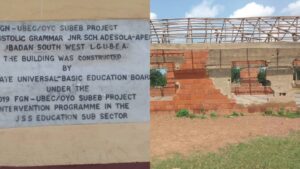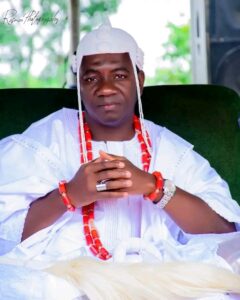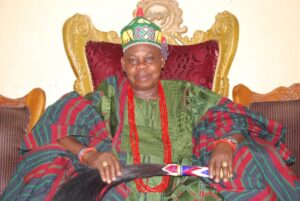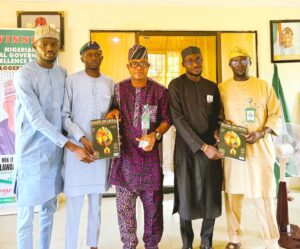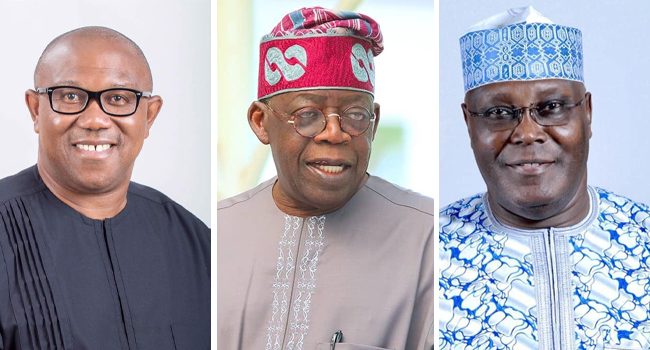
The ruling All Progressives Congress (APC) has asserted that no coalition of opposition leaders, including former Vice President Atiku Abubakar and ex-Anambra Governor Peter Obi, will be strong enough to disrupt President Bola Tinubu’s chances of reelection in 2027.
This declaration was made by APC National Publicity Director Bala Ibrahim during an exclusive interview with The PUNCH on Tuesday.
Ibrahim addressed remarks from Atiku’s spokesperson, Paul Ibe, who claimed that both leaders had learned valuable lessons from the last general elections and would join forces to oust what he termed the “incompetent and clueless” APC administration. Ibe pointed out that the combined votes of Atiku and Obi, which reportedly could total 12 million, should have been sufficient to prevent Tinubu’s presidency and alleviate the suffering inflicted on Nigerians.
In a discussion on Channels Television’s “Politics Today,” Ibe’s comments sparked considerable reaction, with many opposition voices suggesting that a coalition could emulate the successful united front against the APC in 2015, when former President Muhammadu Buhari defeated sitting President Goodluck Jonathan.
Obi’s media aide, Umar Ibrahim, reaffirmed his principal’s dedication to a better Nigeria and openness to collaborate with anyone who shares that vision, provided their intentions do not aim for state capture. Ibrahim stated, “Obi’s commitment to partnership is broad, and he believes that uniting with others to combat APC’s leadership is essential. It is about putting Nigeria’s welfare first, beyond mere party allegiance.”
Opposition parties, organized under the Coalition of United Political Parties (CUPP) and the Social Democratic Party (SDP), shared concerns, emphasizing the need for more than just a coalition of the 2023 presidential candidates from the Peoples Democratic Party (PDP) and the Labour Party. They argued that a unified, credible movement is necessary to advocate for fair elections and mobilize trustworthy leaders to spearhead change.
In an interview with The PUNCH, CUPP National Secretary Peter Ahmeh acknowledged that while a coalition could bolster the opposition’s chances against the APC, it must be centered on ensuring free and fair elections. Ahmeh stressed the importance of perception, suggesting that a candidate from southern Nigeria should be positioned to diffuse regional tensions about northern dominance in recent administrations.
He continued, “To bring about change, the focus must be on leaders united for Nigeria’s collective interest, transcending personal ambitions.” Ahmeh also highlighted the need for election results to be decisively determined at polling stations, citing Ghana’s system as a model for effective electoral integrity.
Meanwhile, SDP’s National Chairman Shehu Gabam expressed skepticism about the feasibility of a coalition at this time, pointing to historical trust deficits among political parties. He stated that many citizens are looking for credible individuals rather than a mere coalition of parties, noting that the key to a successful movement lies in the ability to harness diverse talents and innovative ideas for national benefit.
Similarly, the All Progressives Grand Alliance (APGA) signaled its readiness to collaborate with other like-minded political movements to work towards a united and prosperous Nigeria.
In response to the prospect of an Atiku-Obi alliance, Bala Ibrahim mocked the idea, describing them as “strange bedfellows” unlikely to pose a genuine threat to the ruling party. He insisted that their combined efforts would not achieve the necessary electoral majority, predicting an easy victory for the APC in 2027.
Ibrahim remarked, “It’s unrealistic to think that tallying past votes can equate to winning against a popular incumbent. The APC remains confident in its strategy to maintain its position.”
Additionally, PDP Deputy National Youth Leader Timothy Osadolor criticized the potential unity between Atiku and Obi, arguing that both have contributed to the current struggles faced by the nation. Osadolor viewed their coming together as largely theoretical, suggesting that without substantial commitment, it would not yield the necessary alternative to the APC’s governance.
He concluded, “While uniting may seem advantageous, there are likely better options available for Nigerians moving forward. Their prior collaboration did not translate into a successful outcome, and without addressing their egos, any future alliance may falter.”

